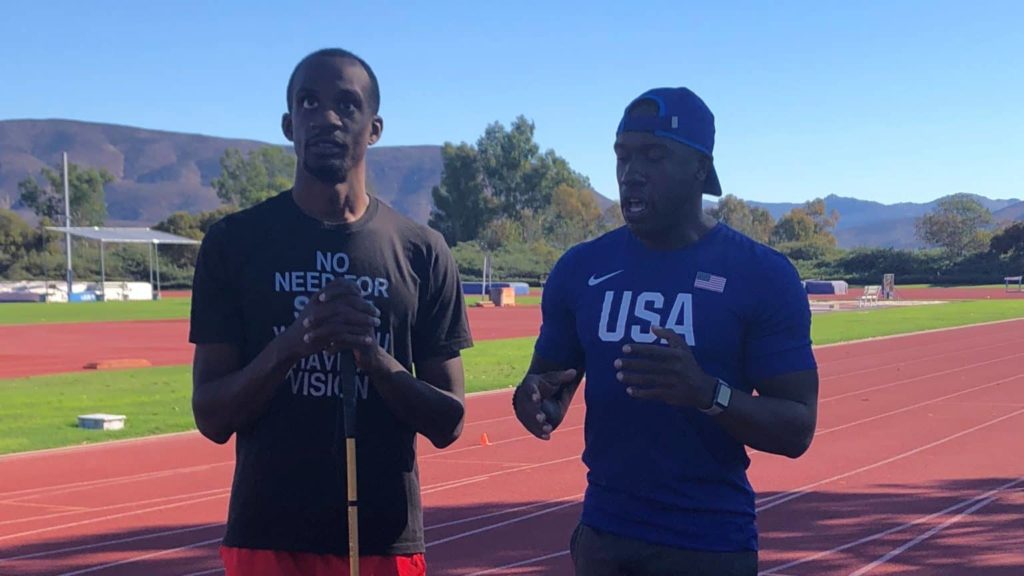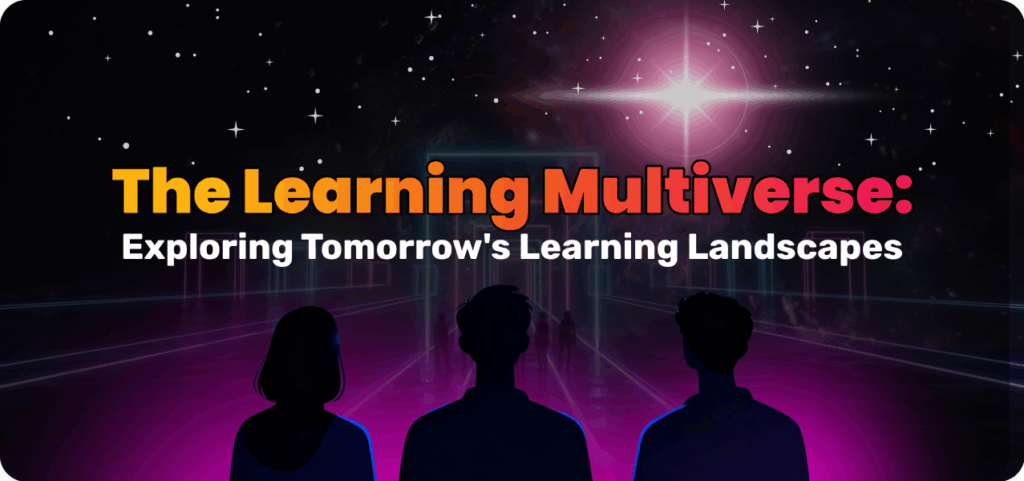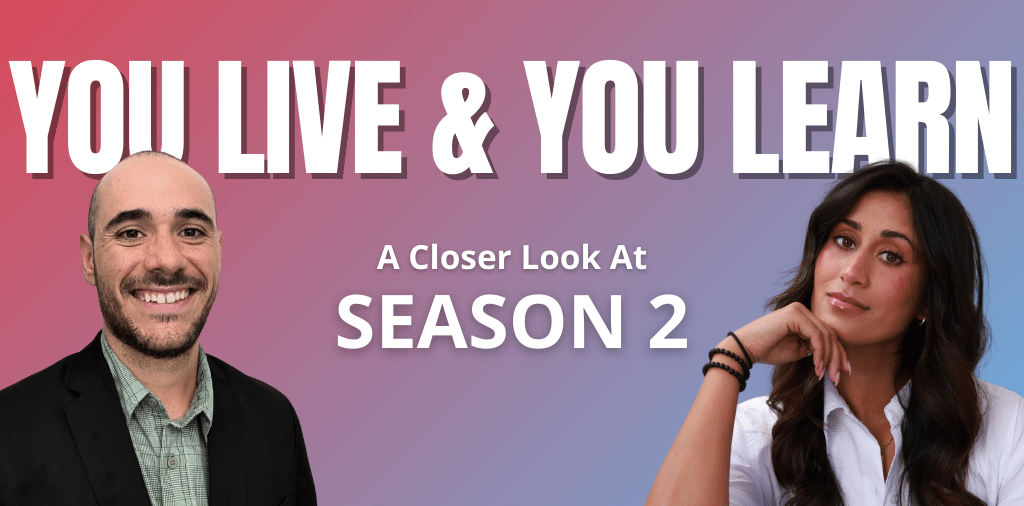A Blind Long Jumper’s 10 Inspirational Leadership Insights

At the age of 8, Lex Gillette learned that one day soon, he’d be permanently blind and his life would be altered forever.
At the age of 8, Lex Gillette learned that one day soon, he’d be permanently blind and his life would be altered forever. Months earlier, after getting out of his bath one night, Gillette noticed his vision was blurry. His mom rinsed his eyes with water and sent him to bed hoping he would see clearly in the morning. But his sight didn’t improve. Gillette was diagnosed with recurrent retinal detachment. The condition typically occurs after intense trauma, but for Gillette, there wasn’t any impact that could explain the injury. But it would be this very challenge that would give him the inspirational leadership stories that he would use to become a great leader. Today, he shares them here with you to inspire you in your leadership journey.
After 13 operations, doctors told him that there was nothing more that could be done. He went home from that last surgery knowing that each day afterward, his vision would slowly get worse until one day, he’d be blind.
His Family Gave Gillette a Vision to Believe In
Gillette’s mother wouldn’t let a disability define him. Instead, she kept Gillette in public school, as opposed to a special program for blind children. She helped instill in him a belief that he could do anything, saying things like “you will be successful, Lex, you just won’t see it with your own eyes.” Along the way, other important influences in his life – including Brian Whitmer, an adapted recreation specialist who he met in high school – helped him to reach goals he never would’ve imagined for himself.
Today, Gillette is the best blind long and triple jumper in the history of the U.S. Paralympics. He holds the long jump world record, is a four-time Paralympic medalist, and a three-time long jump world champion. He participated in the 2020 Tokyo Paralympic Games and has a career as a motivational speaker. Gillette is one of the athletes that shares his inspiring story in our Gold Medal Leadership Experience.
Do you ask yourself “what are the characteristics of a great leader?” or “how do I become a great leader”? Are you seeking to be an inspirational leader that is unparalleled, resilient and authentic? Then these leadership lessons are for you. Read on for more of his remarkable stories and revelations with 10 inspirational leadership insights:
- Find someone to champion your success
“My mom kept me in public school so the majority of my interaction was with other kids who could see. She found different resources and tools in the community that would help me be successful. I learned how to read Braile and how to use a cane so I could navigate on my own. That helped me build my confidence.
Then, when I got to high school, I met Brian Whitmer, who was my TVI (teacher of the visually impaired). He translated my assignments into Braille and supported me at school, but also helped me with my physical education classes. One day we had a Phys Ed test that consisted of different events, including the long jump. I wound up being one of the best long jumpers in my high school! It was invigorating to know I was good at something. Mr. Whitmer encouraged me to pursue the sport at the Paralympic level.”
- Visualize what you want to achieve
“When I learned that the Paralympics has a running long jump, instead of a standing one, which meant I had to run in a straight line and then jump, I thought Mr. Whitmer was crazy. But he was so insistent that I could do it. And he painted such a vivid picture of me going to the Paralympic Games, winning medals, breaking records, and representing Team USA that I started to believe it could come true.
[It reminded me of] when I was first adapting to being physically active without being able to see. I learned to sense things, so I would know where I was in space. I created an image of my neighborhood in my mind. Although I couldn’t see, I mentally knew where everything was located. I created such a detailed image that I literally felt like I could see what was going on. I could even jump off a [small] ledge in my neighborhood without physically seeing below it.”
- Trust in yourself – and the people who support you
“One of the biggest obstacles that I had to get over was that I couldn’t see, yet I had to run down a stretch of track and commit my body to jumping in the air and landing in the sand. I worried about not knowing my surroundings and that I’d get hurt.
Mr. Whitmer said, ‘I’m going to act as your eyes. All I need you to do is trust me.’ Often, we have difficulty trusting others, which is a normal feeling, however making the decision to not trust others in certain situations can be detrimental.”
- Step out of your comfort zone
“I had this imaginary scale in my mind. On one side was me staying in the space that I was in and being comfortable. On the opposite side, I had the potential to compete in front of many, many people at the Paralympic Games representing Team USA.
I realized that if I didn’t take the step forward, then none of those things were even possible. Once I realized that, everything else started to come into play.”
- When you don’t know what to say as a leader, stay focused on the goal
“In high school, I became the captain of my track team. It was empowering to know that I excelled at something despite my disability. At that time, I was still struggling to find myself, so I wasn’t a very verbal leader. But I think my [able-bodied] teammates were motivated by just seeing me push past challenges and limitations every day. That spoke to them in a way I couldn’t have verbally. And it helped them to trust me.”
- Be vulnerable to connect with others
“After I graduated high school, I needed to find a new person to guide me during training. When I got to the Olympic Training Center in 2004, I was confident in myself and my abilities. I was able to be transparent [with potential new guides] and explain where I needed help. When you open that door of vulnerability, it allows other to see you as just a person, not as a gold medalist or CEO.”
- Communicate clearly with your team
“When I compete in huge stadiums, I have to let my guide know exactly what I’m hearing and experiencing so he can make the proper adjustments. We need to be on the same page when we’re competing. Communication is huge. We communicate on the field, but also personally. We know how one another operates, our attitudes, and personalities.”
- Think outside the box
“When I wanted to become a motivational speaker, none of the agents I reached out to got back to me, or they said ‘no.’ So I reached out to the sports management MBA program at San Diego State University. Three students responded, and they helped me create a brand, come up with a slogan, and helped me book my first speaking gigs. Thinking differently helped me find a way to get to a ‘yes’ after all of those ‘nos.’”
- Set new goals for yourself – and learn from your failures
“There’s always something to improve upon and always another level to excel to. If I don’t reach my goal at a competition, I try to recognize and fix whatever was holding me back during my next training session.”
- Recognize that there’s a team behind every successful individual
“Every time that I get on that medal podium, I wish I could make it bigger. That moment is a symbol of the hard work that I’ve put in over months or years. The flag is in the air, the medal is around my neck, and I’m holding a bouquet of flowers. It’s a special time. But I always think about all of the individuals who have helped me because they deserve that moment as well.
A vision is not solely for one individual. It can become a wave and impact the lives of many, and it will involve many. Having a team means that you have people that can pick up the slack for you in areas that you’re not able to do as well. They’ll have your back and support you. When you put a ton of dedicated, common people together, they’re able to achieve uncommon things.”
We learned a lot from talking with Lex Gillette. We learned inspirational leadership lessons like the importance of being open to others’ help, and that small wins are critical precursors to bigger wins. But perhaps most importantly we learned that vision and sight are not the same thing. To close out with our favorite quote from Gillette…
No need for sight when you have a vision. ®
Exceptional athletes like Lex Gillette have the leadership skills and experience to teach us about moving past limitations, performing under pressure, and increasing mental toughness. If you and your leadership team want to develop these skills, and become an inspirational leader learn more about our Gold Medal Experience and Resilient Leader Experience.
WDHB is proud to work in association with The Conference Board, Inc.® on The Gold Medal Leadership Experience and Resilient Leader Experience.
Author
Subscribe to get Access to Exclusive Content





